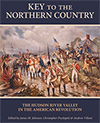What's Your Leadership Philosophy?
By Association of School Business Officials International (ASBO), Tuesday, January 28, 2020
*This excerpt originally appeared in Volume 5, Issue 6 of School Business Leader and is reprinted with permission of the Association of School Business Officials International (ASBO). The text herein does not necessarily represent the views or policies of ASBO International, and use of this imprint does not imply any endorsement or recognition by ASBO International and its officers or affiliates.*
During ASBO International's 2019 Eagle Institue, July 16-19, in West Point, New York, school business professionals had an opportunity to learn from several military leadership experts from Thayer Leadership about what it really means to be a leader. Attendees learned how to not just "talk the talk" but also "walk the walk" as true organizational leaders. Thayer Leadership guided attendees through several experiences to help school business officials reflect on what their own personal leadership philosophies looked like and how that influenced their expectations, standards, and behaviors in the workplace.
Thayer Leadership experts explained that a leadership philosophy clearly defines who that person is as a leader, what matters most to him or her, and what his or her core values are. Such a philosophy is defined by the values and attributes that shape that person as a leader. It reflects how they act when no one else is watching. It demonstrates what that person believes in and stands for.
Being aware of, or defining, your leadership philosophy and communicating it with your colleagues will help others learn what is important to you and expected of you as well as what you expect of your team. Clear communication and outlined expectations are critical for successful organizations and high-performance teams. Thayer leaders noted that any leadership philosophy should be short and simple, make sense, and represent a realistic, authentic, and sincere expression of oneself. Below is a sample leadership philosophy Brigadier General (retired) Maureen LeBoeuf, senior faculty advisor at Thayer Leadership, shared at the Eagle Institute. As you review, consider what your own leadership philosophy looks like and all the personal and social values that mold it. Then consider how it relates to your work situation: how does each value of your philosophy influence your behaviors, expectations, and standards in the workplace?
- Care - Care for family, cadets, and each other
- Dignity and Respect - Treat everyone well
- Development - Personal and professional
- Managing Change - Stay ahead of it or it will overtake us
- Diversity - We are all different, it is that differece that makes us unique and strong
- Pride - In everything that you do
- Maintain a sense of humor - You can't be serious all the time
- Wellness - Physical, spiritual, social, and emotional
After you’ve defined your philosophy and translated how it manifests in your job, share it with a few peers to see if it makes sense and seems realistic. Then print and share the final copy for each member of your organization and brief your philosophy to those you supervise. Remember to review it regularly, as you may want to revise it as you grow in your career and your values evolve.
LEADERSHIP À LA LEWIS
“I cannot emphasize enough the importance of leadership through action. Colonel Thomas Magness, who presented at ASBO International’s 2019 Eagle Institute, echoes this concept perfectly in his book Leader Business: ‘Leadership is a verb. It is not a goal achieved after years of diligent labor. It is not a destination; it’s the journey itself. It is the process of persistence, passion, and absolute commitment to excellence.’”
—David Lewis, Executive Director, ASBO International
Founded in 1910, the Association of School Business Officials International (ASBO) is a nonprofit organization that, through its members and affiliates, represents approximately 30,000 school business professionals worldwide. ASBO International is committed to providing programs, services, and a global network that promote the highest standards in school business. Its members support student achievement through effective resource management in various areas ranging from finance and operations to food services and transportation. Learn more at asbointl.org.
This content was adapted and remixed from presentation materials provided by Thayer Leadership at ASBO International’s 2019 Eagle Institute.

Key To The Northern Country: The Hudson River Valley in the American Revolution
Edited By Colonel (Retired) James M. Johnson, Ph.D.
Edited By Colonel (Retired) James M. Johnson, Ph.D.





